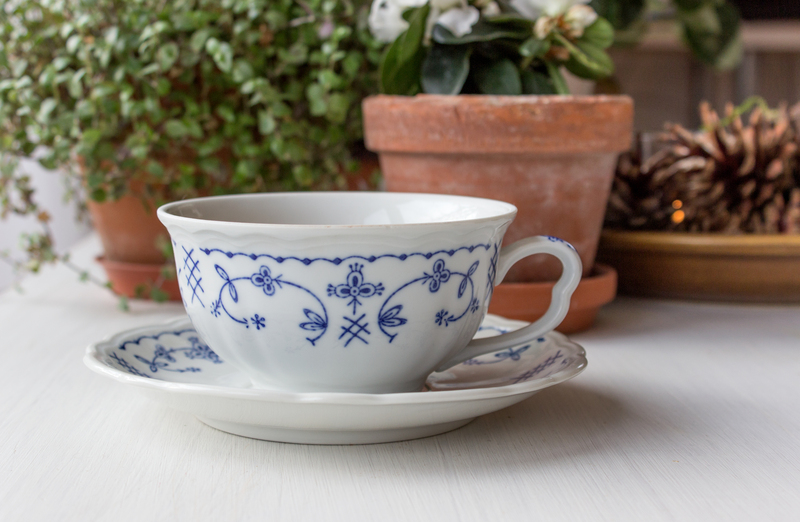Creating a Productive Atmosphere with Office Decluttering
In today's fast-paced professional landscape, office decluttering is no longer a mere aesthetic choice--it's a strategic move towards better productivity, wellness, and success. If you've ever felt overwhelmed by your workspace or noticed productivity dips, it might be time to assess your environment. This article dives deep into the importance of workplace decluttering and offers practical steps to create a productive atmosphere with a tidy, organized office.

Why Decluttering Matters for Productivity
A cluttered office isn't just an eyesore. It tangibly impacts efficiency, stress levels, and even your ability to focus. Multiple studies show that decluttered offices boost productivity by minimizing distractions and encouraging a motivated mindset.
- Reduced Distractions: A tidy workspace limits visual clutter, letting you concentrate on tasks without interruption.
- Enhanced Well-being: Less clutter means less stress and a heightened feeling of control.
- Increased Efficiency: When everything has a place, you'll spend less time searching for supplies or documents.
- Professionalism: A clean office fosters positive impressions among colleagues and clients alike.
How to Approach Decluttering For Maximum Office Productivity
Decluttering your workspace involves more than just tossing out old papers. It's about crafting a space that supports your workflow, values, and health. Let's break down the steps for transforming your office into a beacon of order and focus.
1. Assess the Clutter Hotspots
Begin by analyzing your environment with a critical eye. Are there piles of paperwork on your desk? Cables tangled beneath your feet? Unsorted documents stacked on shelves? Recognizing trouble spots is the first step towards targeted office decluttering solutions.
- Surface Clutter: Desk surfaces often collect the most unnecessary items.
- Storage Areas: Cabinets, drawers, and shelves can hide years of unused or outdated materials.
- Digital Clutter: Remember that digital files and emails can be just as overwhelming if left unchecked.
2. Set Decluttering Goals and Priorities
Without clear goals, it's easy to lose focus or become overwhelmed. Prioritize what matters most for your workflow:
- Immediate Needs: Keep only those items you use daily within arm's reach.
- Reference Materials: Store less-used items and documents in labeled folders or drawers.
- Personal Touch: A few personal items for motivation are fine--just avoid letting them multiply.
3. Sort, Purge, and Rehome
The heart of any effective workspace organization strategy involves sorting through everything and separating it into actionable categories:
- Keep: Essential for work, used frequently, or of significant value.
- Recycle/Dispose: Outdated, broken, or no longer relevant items should be responsibly discarded or recycled.
- Relocate: Items that belong elsewhere, such as communal kitchen supplies or personal belongings, should be moved to their proper place.
- Donate: Supplies or equipment still in good condition but unnecessary for your role can benefit others in the organization, or local charities.
4. Optimize Your Storage Solutions
An organized office relies heavily on practical and efficient storage. Investing a bit of thought into where and how things are kept can make all the difference.
- Label Everything: From file folders to cable organizers, labels help staff locate and return items with ease.
- Use Vertical Space: Consider wall-mounted shelves or stackable solutions to maximize your area.
- Drawer Dividers and Bins: These tiny upgrades can prevent drawers from becoming junk repositories.
- Paper Management: Switch to digital documentation whenever possible. Use file organizers for necessary physical documents.
The Psychological Benefits of an Organized Workspace
Beyond productivity, office decluttering delivers a host of psychological advantages:
- Reduced Stress: Physical order translates to mental clarity, lowering anxiety and frustration.
- Sense of Accomplishment: Each step you take towards a cleaner space provides an empowering sense of achievement.
- Motivation: A pleasant office environment makes you look forward to work rather than dread messy chaos.
- Improved Health: Less dust and fewer allergens positively impact well-being. Plus, ergonomics can be improved when rearranging your workspace.
The Link Between Decluttering and Company Culture
An organized, decluttered office isn't just a personal benefit. It reflects and reinforces wider company values. Clean workspaces foster transparency, open communication, and respect for communal areas. When management prioritizes office organization, employees feel their workspace is valued.
Techniques for Maintaining a Clutter-Free Office
Decluttering is not a one-off event. For the most effective productive atmosphere in your office, regular maintenance is essential. Here are some tried-and-tested strategies:
- Adopt a "One In, One Out" Policy: Whenever new items enter your office (supplies, gadgets), try to remove something else.
- Quick Daily Tidy: Dedicate the final five minutes of your workday to returning items to their homes and disposing of unnecessary materials.
- Weekly Declutter Sessions: Schedule a brief calendar reminder once a week for a more thorough clean-up.
- Monthly Deep Dives: Once a month, reassess everything on shelves or in drawers for continued relevance.
Going Beyond Physical Clutter: Digital Decluttering
In the digital age, a decluttered digital workspace is as important as a clean desk.
- Organize Desktop and Folders: Develop a logical folder structure and regularly archive or delete unused files.
- Unsubscribe & Filter Emails: Use filters to direct emails and unsubscribe from nonessential mailing lists.
- Cloud Storage: Move documents to shared drives where they're easily accessible and backed up.
Personal Productivity Boosters: Decluttering Ideas for Every Office
While every workspace is different, there are universally effective office decluttering tips that work in almost any setting:
- Minimalist Supplies: Keep only what you use regularly--avoid the temptation to hoard free swag or backup office supplies.
- Cord Management: Use cable ties or sleeves to keep technology cords neat and out of the way.
- Personal Zones: Separate "work" from "personal" zones, especially in home offices.
- Inbox Zero: Aim for a regularly cleared physical and digital in-tray.
- Natural Elements: A small plant or a picture can add warmth without cluttering your space.
Office Declutter Checklist: Steps to Sustained Productivity
- Remove Everything: Start with a clean slate by clearing your desk or office area completely.
- Sort Decisions: Categorize items into keep, relocate, or discard/donate piles.
- Clean Surfaces: Wipe down all surfaces before returning only essential items.
- Reorganize: Store items based on frequency of use and accessibility.
- Maintenance Routine: Set calendar reminders for daily/weekly tidy-ups.
Fostering Collaborative Organization Culture
Office organization works best when it's a shared value. Managers can lead by example, encouraging staff to:
- Participate in Quarterly Declutter Days: Make decluttering a fun, communal event.
- Share Storage Solutions: Exchange tips for effective tools or organizational hacks.
- Offer Flexible Workspaces: Adopt a clean desk policy to foster shared accountability.
Remember, a decluttered office is an investment in both employee satisfaction and workplace performance.
Common Challenges and How to Overcome Them
-
"I don't have time."
Break decluttering into manageable chunks--tackle one shelf or drawer per day. -
Sentimental attachments:
Take pictures of items with memories before letting go. Limit the number of non-essential keepsakes. -
Shared Office Spaces:
Establish shared systems and common agreements on what stays and what goes.

Office Decluttering Tools & Resources
Enhance your efforts by investing in quality workspace organization tools such as:
- Filing Cabinets and Trays: Store documents methodically.
- Cable Management Packs: For a cleaner, safer electrical setup.
- Label Makers: Easy identification eliminates wasted searching time.
- Desk Organizers: Keep pens, notepads, and essentials at hand but in order.
Conclusion: Reaping the Rewards of Office Decluttering
Creating a productive atmosphere with office decluttering isn't just about appearances--it's a core pillar of efficiency, motivation, and overall well-being. By embracing regular organization, adopting effective decluttering strategies, and fostering a culture of neatness, you pave the way for business success. Remember, a thoughtfully arranged office inspires clearer thinking, better teamwork, and improved results.
Whether you're tidying a corner desk or overseeing a large office floor, the road to office organization and productivity begins with the first step: clearing the clutter. Let your environment be the silent partner in your professional triumphs--and enjoy the peace of mind that comes with a truly organized workspace.